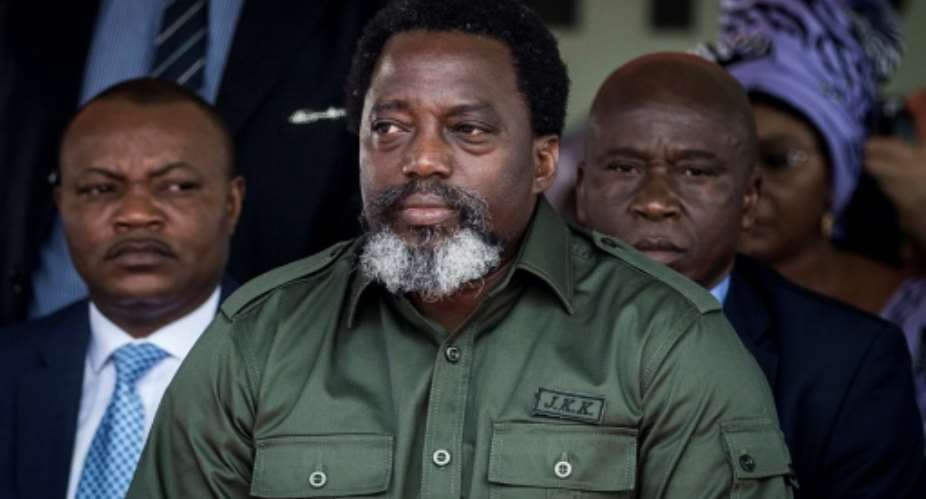The Democratic Republic of Congo on Monday accused Washington of sparking "needless fear" after the US embassy in Kinshasa warned of a "possible terrorist threat" against its mission in the country as it heads towards key elections.
"You have to distrust information coming from people who want to spread needless fear and uncertainty among the Congolese a few days before elections," government spokesman Lambert Mende told AFP.
The conflict-prone central African country heads to the polls on December 23 to elect a successor to longtime President Joseph Kabila as well as lawmakers for its national and provincial parliaments.
"Now that the holding of three elections on December 23, 2018, is a certainty, those who have no control over the electoral process in the DRC are trying to distract the Congolese," said Mende, who is also the country's communications minister.
The embassy on Saturday cited "credible and specific information of a possible terrorist threat against US government facilities in Kinshasa", which were closed on Monday.
Campaigning in the landmark elections, which kicked off last Thursday, continues until December 21.
A constitutional clause has allowed Kabila to remain in power as caretaker leader even though his second and final elected term ended nearly two years ago.
Mende serves as spokesman for Kabila's protege Emmanuel Ramazani Shadary, a hardline former interior minister running to succeed him.
DR Congo, an impoverished but mineral-rich country, has never known a peaceful transition of power since independence from Belgium in 1960.
Late last month the Congolese authorities said the vote would go ahead without help from the international community.
Kinshasa has declined offers of advice, oversight and funding to help organise the polls in a country nearly five times the size of France.
Previous elections, in 2006 and 2011, took place with material and logistical support from the UN mission to the DR Congo known as MONUSCO.
However relations between MONUSCO, the world's largest peacekeeping operation, and Kabila's government have long been strained.
Kinshasa has repeatedly demanded the winding down of the mission, which counts more than 15,000 troops, 1,000 police and 2,500 civilians in its ranks.





 Election 2024: Ghanaians will vote to erase Akufo-Addo’s horrifying legacy – Nii...
Election 2024: Ghanaians will vote to erase Akufo-Addo’s horrifying legacy – Nii...
 BP killed ex-Weija-Gbawe MCE – Tina Mensah reveals
BP killed ex-Weija-Gbawe MCE – Tina Mensah reveals
 Limited voter registration exercise: NDC slams EC over mass technical challenges
Limited voter registration exercise: NDC slams EC over mass technical challenges
 UK, America will one day come to Ghana to borrow Akufo-Addo to be their presiden...
UK, America will one day come to Ghana to borrow Akufo-Addo to be their presiden...
 EOCO returns fire at OSP over Cecilia Abena Dapaah’s money laundering case
EOCO returns fire at OSP over Cecilia Abena Dapaah’s money laundering case
 Anti-corruption endeavours must be rooted in systems, investigations and prosecu...
Anti-corruption endeavours must be rooted in systems, investigations and prosecu...
 We’ve not introduced 1% cybersecurity levy on banking transactions – BoG
We’ve not introduced 1% cybersecurity levy on banking transactions – BoG
 EU hits out at sidelining of Chad election observers
EU hits out at sidelining of Chad election observers
 ‘Be calm; we’re having engagements on new fee implementation’ — KNUST SRC assure...
‘Be calm; we’re having engagements on new fee implementation’ — KNUST SRC assure...
 Bawumia is compassionate, unique politician without corruption tag — Miracles Ab...
Bawumia is compassionate, unique politician without corruption tag — Miracles Ab...
